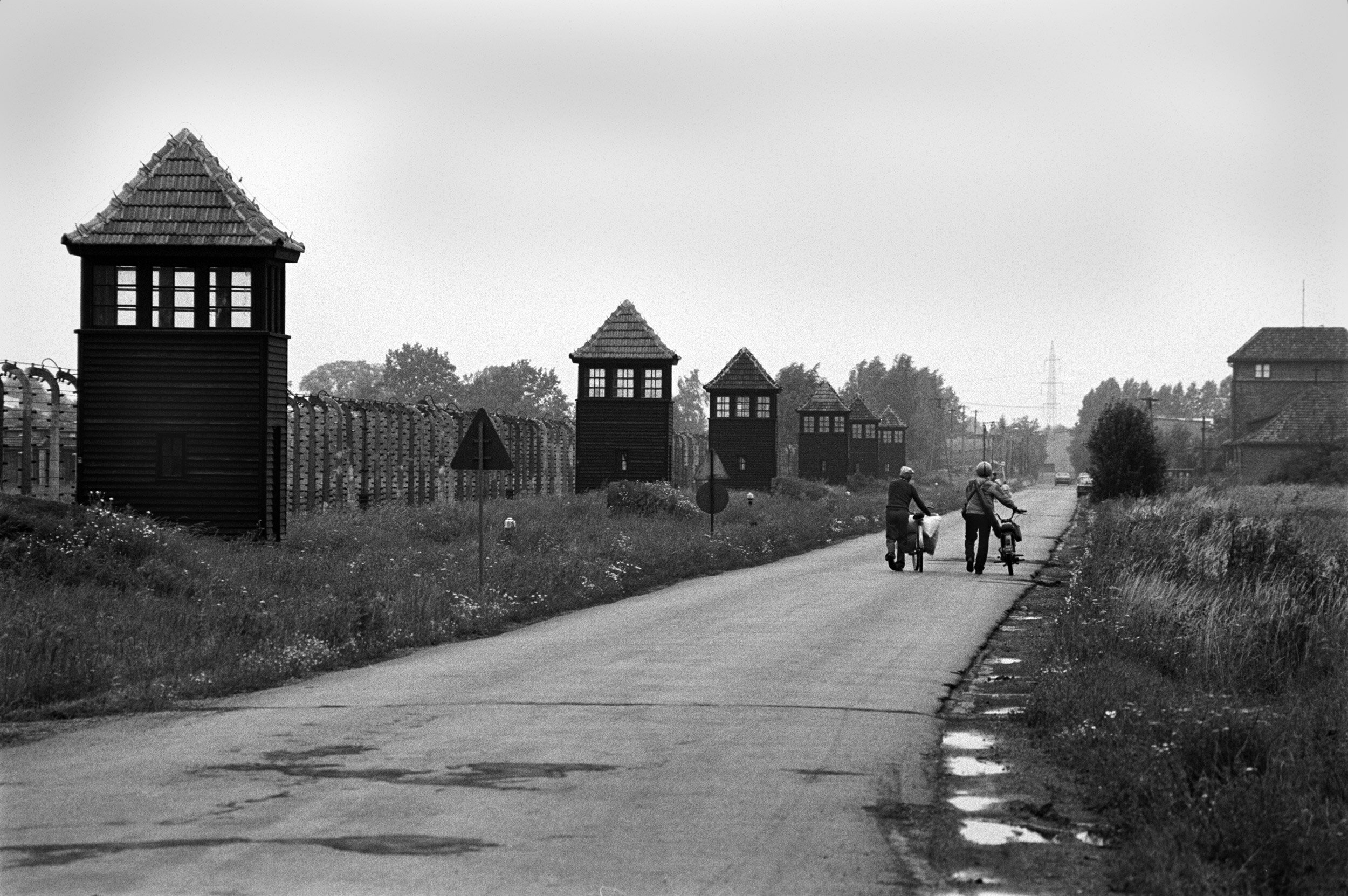It was the short drive from Kraków to Auschwitz that moved us to the center of my mother’s history and set the stage for the dark heart of our trip. As early as the summer of 1940, the Nazis had begun construction of a death camp in the small Polish city of Oświęcim, renaming it Auschwitz. As we entered the main camp, under that infamous archway, we walked along the gravel paths beneath the shelter of trees and a leaden sky. The empty chill in the air had turned into a fine mist, with the clouds a constant, ominous gray.
I followed my mother through the hallways and up and down the stairs of Block 10, the site of notorious experiments by Josef Mengele. Tourists wandered the hushed spaces where piles of shoes, hairbrushes, and suitcases are displayed behind glass walls, hinting at the immensity of the dead.

At the end of a long hallway on the second floor my mother stopped to rest. She leaned against the wall and closed her eyes, her shoulders wilting as her body sank onto the hard surface. Did she hear heavy boots thunder across the floor, jarring her to recall an anguished time? Could her memory of being starved and forced to exist at just the point of survival be that specific?
I think not. The psychic and physical wounds were too numerous, and the abuse had been too steady for any one instance to outweigh the others. Her weary posture and stoic expression suggested release, as if a dark bird, a scratchy, pent-up animal composed of a thousand nightmares, had finally been liberated. The space around us grew quiet and utterly still, and at that moment I witnessed both her clarity and defeat, fitting reminders of her deep resilience.

Auschwitz I was built to hold approximately ten thousand inmates, but by 1942, soon after the first transports of Jews to the camp, the Nazis could not maintain the pace of extermination. They commenced building a death camp on a former, four-hundred-acre potato farm in the village of Birkenau. Also known as Auschwitz II, Birkenau became the site of several new crematoria and could house more than twenty times as many people.

On that day in July 1993, with the cloudy sky threatening rain, my mother and I stood on the track that runs through Birkenau. She began to describe that day in August 1943 when Nazi soldiers ordered her family into the street and forced them to the trains, but she stopped, grasping for language and light. Her face was a singular combination of defiance laced with sorrow, an explosive mingling of emotions pulsing just under the surface.

In the barracks at Birkenau my mother showed me the platform where she had slept, crammed together with a half-dozen others, sometimes using her own urine to wash scabies from her legs. The place was suddenly full of ghosts rushing in. Rather than trying to comprehend what I was feeling, I took pictures, hiding behind my camera and telling myself that I would think about it all later.
Alone in there with my mother, we stood between the shadows and something much darker. In that decrepit barn, designed to hold fifty-two horses but instead housing eight hundred humans, I touched the wood of the twisted bunks lining the walls and caught my breath. I couldn’t focus the camera, couldn’t adjust to the fist in my stomach or the smell of the memory of urine and death.

As we walked slowly toward the train terminal, the air warmed and humidity followed us across the trampled grounds. We climbed toward the top of the guard tower that sits above the track, the whole of Birkenau spread at our feet. I hung back as we climbed, watching through a window as a police car pulled up in advance of the arrival of the queen of Denmark. I turned to see that my mother had moved ahead, as if poised to take flight.
Instinct took over and I pushed the shutter. The camera was my companion, an alter ego at the ready, seeking truth. The instances when that truth would reveal itself were impossible to predict, but I needed to be there, ready, as those random moments appeared. Maybe here in the tower was such an infinitesimal slice of clarity, rooted in my mother’s unwavering search for meaning. When I look at the picture of her in the guard tower I see her climbing to heaven. I see someone who is both alive and already dead, moving toward the light.

It was late afternoon when we left Birkenau and the sky began to clear. We headed north through the heavy terrain, passing farms and villages with names that seemed plucked from ancient vines. I wanted to say the right things, but my throat felt constricted, my emotions a tangled maze of thickened blood and blackened earth. My turn at the wheel of her closure was drawing to the end.
